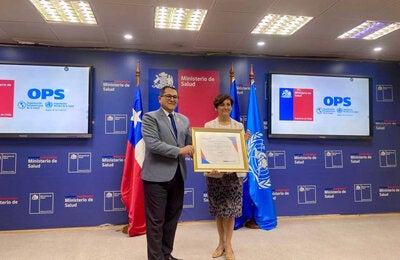Awareness of the importance of mental health care and psychosocial support during emergencies, whether caused by complex humanitarian crises, natural disasters or epidemics, has clearly increased in recent years.Many organizations and governments in the Region of the Americas have developed interventions to give response to these events.
As there are numerous relevant documents, both at global and regional levels, it was considered necessary to compile key information on the subject.The Pan American Health Organization (PAHO/WHO) developed these three brief documents described below.
The "Technical Guide for Mental Health in Emergency and Disaster Situations,"(in Spanish) which includes a summary of the conceptual framework; the nine key action lines; principles of care for people with mental, neurological and substance use disorders; a chapter on psychosocial care and safe education for children; and recommended supplementary readings.
"Damage assessment and needs analysis in the health sector in disaster situations- EDAN: Mental Health Component,"(available upon request) is a guide that includes a general introduction to PAHO's EDAN (Damage Assessment and Analysis, for its acronym in Spanish) laying emphasis on mental health evaluation. It addresses the specificities of the three different stages: pre-event, during the first 72 hours, and during the first 30 days,plus annexes with tools for the last two stages.There are some considerations about screenings, obstacles and problems, as well as other more general considerations. It includes basic bibliography.
"Protecting mental health and psychosocial support in epidemics" (available upon request) is a document that summarizesthe latest emerging epidemics, their impact and psychosocial risks,providing key information for planning mental health care and psychosocial support. It includes elements of Psychological First Aid (PFA).It provides information on care for people with mental disorders, corpse management, psychosocial care to response teams, and social communication strategies. It also includes recommended bibliography.
This compilation is expected to be useful for pre-disaster capacity building, as well as to evaluate, design, plan and monitor mental health interventions and psychosocial support during different types of emergencies.



